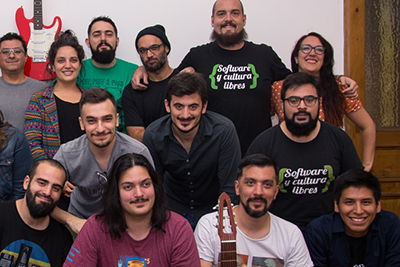
With half a billion people pushed into poverty and an estimated 200 million people losing their jobs due to the impacts of COVID-19, the call for a just, fairer economy was especially relevant.
Even before the pandemic, young people were three times more likely to be unemployed than adults, said Simel Esim, head of the International Labour Organization’s Cooperative Unit. Meanwhile, young women are more than twice as likely to be unemployed than young men; and three out of four young people are engaged in informal gig-based work, compared to 60 percent of adults, Esim added.
In an opinion piece last month, O’Brien wrote that cooperatives can be a concrete tool in the hands of young people for improving their work and entrepreneurship conditions. “A generation of younger workers is ready and waiting to transform their businesses and workplaces through the cooperative business model. The lack of viable career paths for youth is one of this generation’s greatest crises. Cooperatives can—and should—be one of their greatest opportunities,” he said.
During last week’s webinar, O’Brien demonstrated how co-ops can bridge stark youth unemployment gaps, not only in the U.S., but around the world.
“While the impacts of COVID-19 here in the U.S. is critical, we know that the challenges are even greater in the developing world, particularly in countries with significant youth populations, such as Uganda,” he said. An estimated 77 percent of that country’s population is under the age of 25.
NCBA CLUSA’s entrepreneurship and enterprise development work in Uganda is improving youth livelihoods. Between 2015 and 2020, NCBA CLUSA’s Mastercard Foundation-funded Youth Empowerment Through Agriculture project trained more than 25,000 young people in agricultural business skills.
“We know that peer learning is one of the best ways to learn,” O’Brien said. “We also know that youth are attracted to the collaboration that comes with belonging to a cooperative. And we know that cooperatives help build social capital and networks for youth that can translate to access to finance,” he added.
The appeal of cooperatives among young people was a common thread during the webinar. In Buenos Aires, Argentina, a worker-owned software development and training cooperative called Cambá is meeting the needs of its worker-owners by prioritizing solidarity over competition. “We leave no one behind,” said Neto Licursi, a founding worker-owner. Right now, that means implementing a sliding salary model based on the unique needs of worker-owners during the pandemic, including single parents.
Also during last week’s webinar, Isabelle Legare, Social Affairs Officer in the Programme on Youth Unit within the Division for Inclusive Social Development at the United Nations’ Department of Economic and Social Affairs, pointed to new research suggesting that youth social entrepreneurship can offer not only employment opportunities, but also help achieve the 2030 Agenda when aligned with the needs, challenges and ambitions of young people.
The 2020 World Youth Report: Youth Social Entrepreneurship and the 2030 Agenda, published this month, is available for download here.
Ana Aguirre, a co-founder of the Young European Cooperators Network, agreed with Legare, adding that young people are “naturally very cooperative” and just need to be introduced to co-ops as a community-based solution. Aguirre also reminded webinar attendees that the COVID-19 pandemic is a historic moment to demonstrate the “power and resilience” of the cooperative model.
“We need to keep challenging ourselves… Surviving is not enough,” she said.


